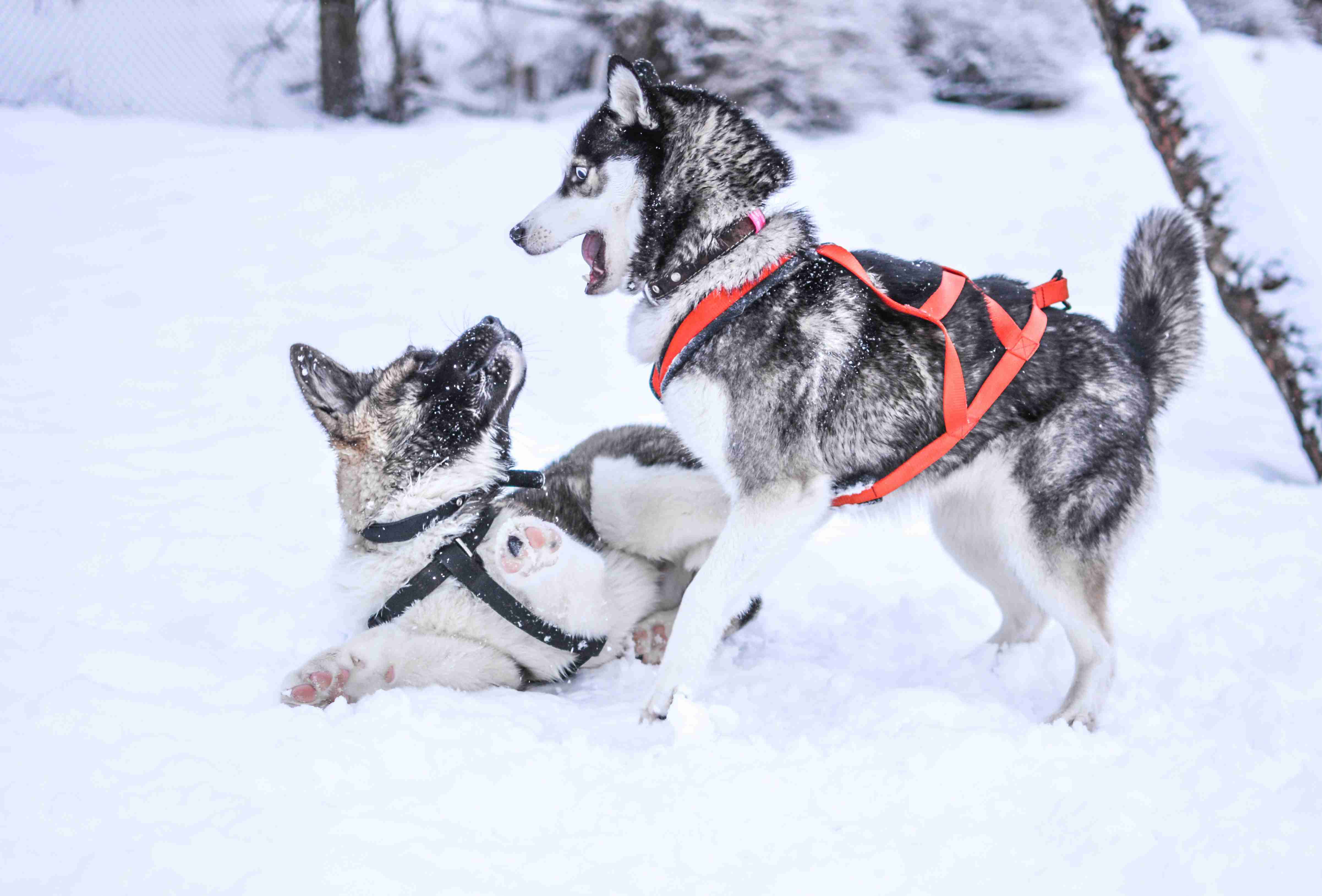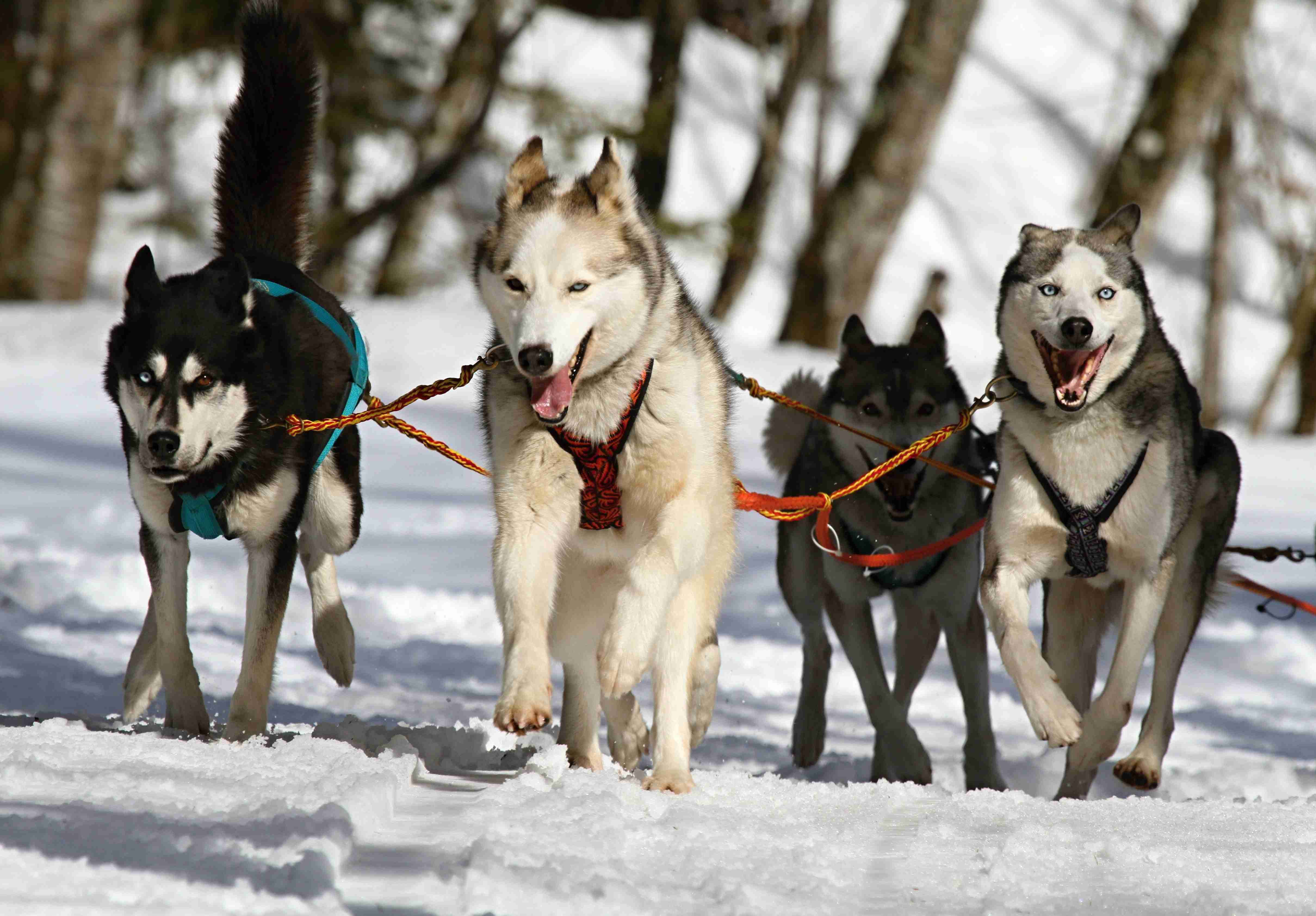If you’re considering adding an Alaskan Malamute to your family, you may be wondering if these majestic dogs are prone to barking or howling. After all, while some people love the sound of a dog singing, it can be a nuisance to others. So, what’s the truth? Do Alaskan Malamutes bark or howl more often? In this post, we’ll dive deep into the vocal tendencies of these beautiful dogs and help you understand what to expect if you decide to bring one into your home. Whether you’re a first-time dog owner or a seasoned pro, you won’t want to miss this informative article. Let’s get started!
Unleashing the Truth: Do Alaskan Malamutes Bark or Howl More Often?
Alaskan Malamutes are a majestic and beautiful breed of dog that has won the hearts of many pet owners all over the world. They are known for their thick fur coat, athleticism, and strength, which make them excellent sled dogs. Apart from their physical attributes, they are also known for their vocalizations. Alaskan Malamutes are known to be a vocal breed, but the question is, do they bark or howl more often?
In this blog post, we will explore the vocalization habits of Alaskan Malamutes and answer the question of whether they bark or howl more often.
Barking or Howling: What’s the Difference?
Before we dive into the topic at hand, it’s essential to understand the difference between barking and howling. Barking is a sharp, short, and loud sound that dogs make to communicate. Dogs bark to warn their owners of potential dangers, to express their excitement or frustration, or to seek attention.
On the other hand, howling is a long, mournful sound that dogs make by holding their head up and projecting their voice. Howling is a form of communication that dogs use to convey different emotions such as loneliness, fear, or happiness.
Do Alaskan Malamutes Bark?
Alaskan Malamutes are not known for excessive barking. They are generally quiet dogs and only bark when necessary. However, like any other dog breed, they may bark to alert their owners of potential dangers, to express their excitement or frustration, or to seek attention.
If your Alaskan Malamute is barking excessively, it’s essential to identify the cause of the barking and address it accordingly. Excessive barking may be a sign of anxiety, boredom, or lack of exercise.

Do Alaskan Malamutes Howl?
Alaskan Malamutes are known to be a howling breed. They are descendants of wolves, and like their ancestors, they use howling as a form of communication. Alaskan Malamutes may howl to express their emotions, to call their pack, or to communicate with other dogs.
If you have an Alaskan Malamute, you may notice that they howl when they hear sirens, music, or other dogs howling. Howling is a natural behavior for Alaskan Malamutes, and it’s essential to understand that they may howl for no apparent reason.
Training your Alaskan Malamute to Bark or Howl
Training your Alaskan Malamute to bark or howl on command is possible, but it may take some time and effort. To train your Alaskan Malamute to bark on command, you can use a trigger word or a hand signal and reward them when they bark.
To train your Alaskan Malamute to howl on command, you can play a howling sound and reward them when they howl. With consistent training, your Alaskan Malamute will learn to bark or howl on command.
Conclusion
Overall, Alaskan Malamutes are a vocal breed, but they are not known for excessive barking. They may bark to alert their owners of potential dangers, to express their excitement or frustration, or to seek attention. On the other hand, they are known to be howling dogs and may howl to express their emotions, to call their pack, or to communicate with other dogs.
Training your Alaskan Malamute to bark or howl on command is possible, but it may take some time and effort. Remember, barking or howling is a natural behavior for Alaskan Malamutes, and it’s essential to understand their vocalization habits to provide them with the best care possible.
In conclusion, Alaskan Malamutes are known for their vocal communication, and whether they bark or howl more often is a topic of debate. While they may bark to alert their owners of potential danger or strangers, they howl as a means of communication, expressing their emotions and feelings. Understanding the reasons behind your Alaskan Malamute’s vocalizations can help you train them better and strengthen your bond with them. So, if you’re considering adopting an Alaskan Malamute, be prepared for their unique vocalizations, and embrace their howls and barks as a part of their personality.
Please follow us on Social Media





%20-%20Copy.jpg)


.jpg)